WATERVILLE — Dozens of pre-adolescents, clad in shorts and sweat-soaked t-shirts littered with crumbs from peanut butter and jelly sandwiches and Lay’s potato chips, erupt in shrieks and cheers in a dark auditorium.
Megan Rapinoe has just scored a second penalty for the United States national team in a match against Spain, securing the squad’s place in Friday’s quarterfinal against host France in the 2019 FIFA Women’s World Cup. In this room on the campus of Thomas College, in the wide smiles and wider eyes, the future of soccer in the nation sits — and stands — enraptured.
“I think when you are younger, you see sports and you think ‘That’s just a team,’” said Sarah Lowell, one of the counselors this week at the Central Maine Soccer Camp hosted by Thomas. “Then as you get older, you start to find individual players who ‘play like me’ and you start to have that connection. That’s how it was for me.”

Rylee Pelletier lies on her stomach as she prepares to scrimmage during soccer camp Thursday in Waterville. Morning Sentinel photo by Michael G. Seamans
For 11-year-olds Rylee Pelletier of Sidney and Madison Gervais of Waterville, the seeds are being sewn. The young girls are the hearty soil, the magic seen on the screen during a lunch break at camp in a large lecture hall the nutrition needed to grow. They see Rapinoe and Alex Morgan and “the new goalie” and they see themselves.
They see players who play the way they do — or the way they envision they do — and it begins to connect.
“It’s kind of cool to see them doing the things that are what we’re working on at camp,” Pelletier said. “I think when I get older and if I can choose one job, I would want to be a professional soccer player.”
“My dad was into (soccer), and I started when I was three,” Gervais said. “I stopped for two years, but then I missed it. I play basketball, too, but not all the time.”
Not all of sporting America is as connected to soccer as the young athletes who give of hours, days and weeks on weekends and summer vacations to pursue the game they love. Each time a World Cup rolls around — be it the men’s or women’s game — the general public’s interest ebbs and flows with the fortunes of the United States.
When the women played Japan in the World Cup final in 2015, its more than 25 million television viewers stateside smashed all soccer records. With the U.S. men out of the competition entirely last summer, just over half of that number watched that final between France and Croatia.
“The soccer fanatic is going to be watching from the beginning, and they’re going to be watching not only the U.S., but they’re also going to be watching other countries as well,” said Chris Parsons, the Thomas College men’s soccer coach who runs the Central Maine Soccer Camp. “For the general sports fan, it’s obviously more exciting when something’s on the line. It means more. So it’s probably more exciting for the general public (now).”
Lowell, who will be a senior at Messalonskee High School in the fall, has watched how both the boys and girls at soccer camp interact. Where the boys are more apt to just dive right in to drills and new philosophies, the girls take a more calculated approach.
What doesn’t surprise her, she said, is the girls willingness to play a physical game once they are engaged and confident.
Even Pelletier had an interesting observation from her viewing of World Cup games over the last couple of weeks, of which she said she’s watched “about half of them.”
“One funny thing I noticed, and it sounds kind of weird, but the men have a lot more fake injuries,” Pelletier said, giggling at her not-so-subtle jab at men’s players flopping in an effort to earn unjust penalty calls.
“The boys and girls definitely have different attitudes,” Lowell said of the campers. “But the girls can be physical. It’s funny, because where the boys might act like they’re hurt if something little happens to their ankle, you always see the girls pop right up and say, ‘I’m fine. I’m fine,’ and keep going.”
Part of that, she believes, comes from what the girls are watching the women do on television during the World Cup.
“They have role models,” Lowell said. “They see people who are just like them playing at that level.”
The lasting effects of World Cups — and the United States’ involvement in them, on both the men’s and women’s sides — is a constant topic of conversation. Even at the local level, World Cup success produces tangible results, right here in central Maine.

Madison Gervais battles for the ball with another camper Thursday at Thomas College in Waterville. Morning Sentinel photo by Michael G. Seamans
Parsons, who previously coached at the University of Maine at Farmington, has been around the game long enough to see what happens when the U.S. women win, when the U.S. men surprise and, unfortunately, when the men’s national team doesn’t qualify at all.
“I think because the U.S. (men were part of the 2014 World Cup) and we had a big win in that tournament and we were doing well, that definitely, definitely helped,” Parsons said. “We’ve just made a huge transition on the men’s side, and it’s a whole new generation of players coming up.
“Hopefully, by the next (men’s World Cup in 2022) we are in it, and it’s a whole new generation of players and a new generation of kids growing up watching it. If we’re in it, it makes a big difference. It really helps the growth of the sport.”
Copy the Story LinkSend questions/comments to the editors.


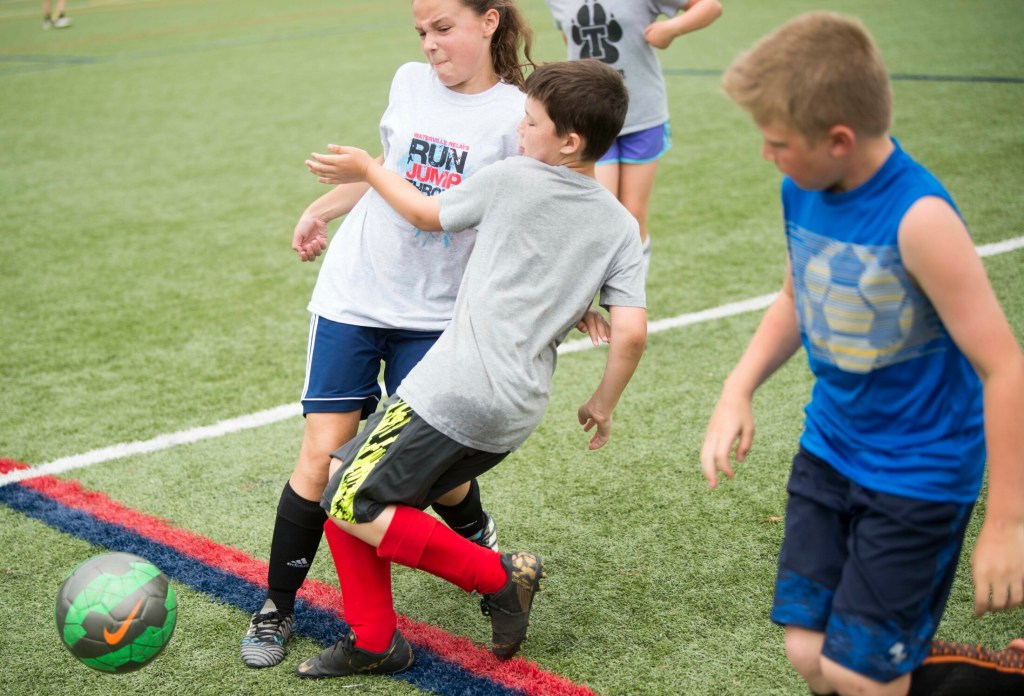
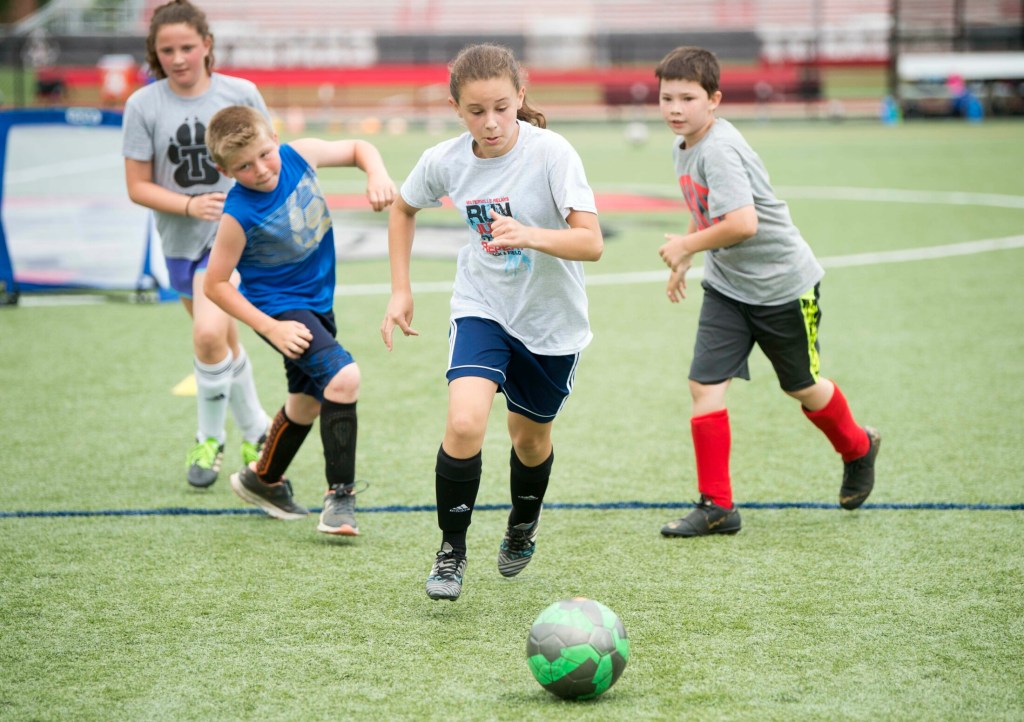
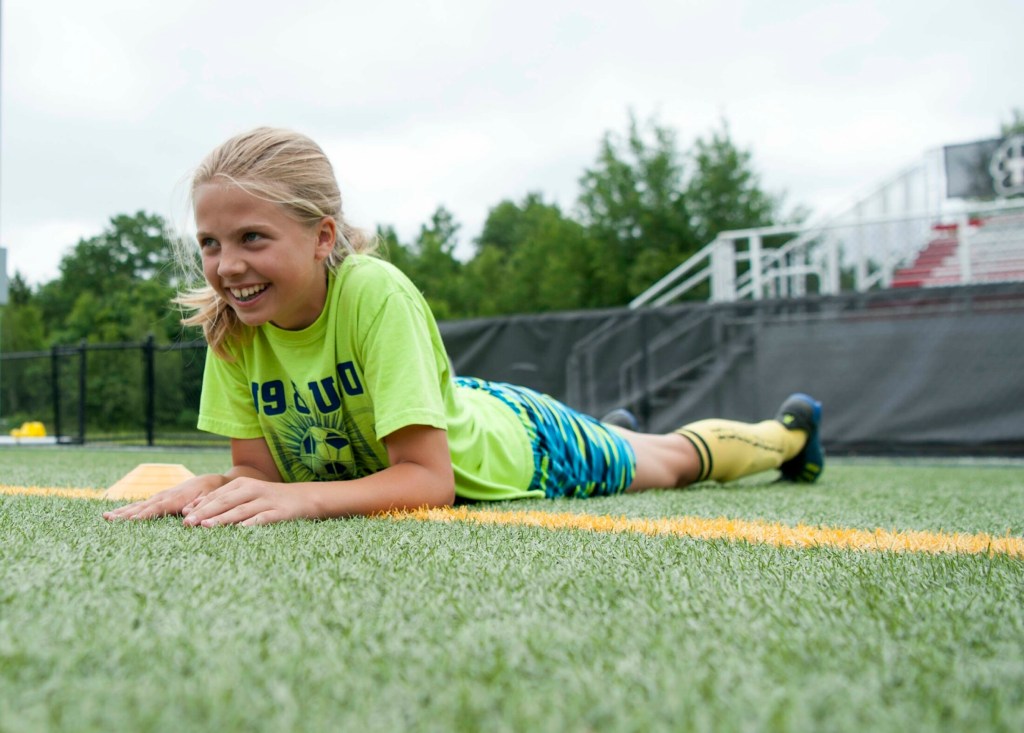
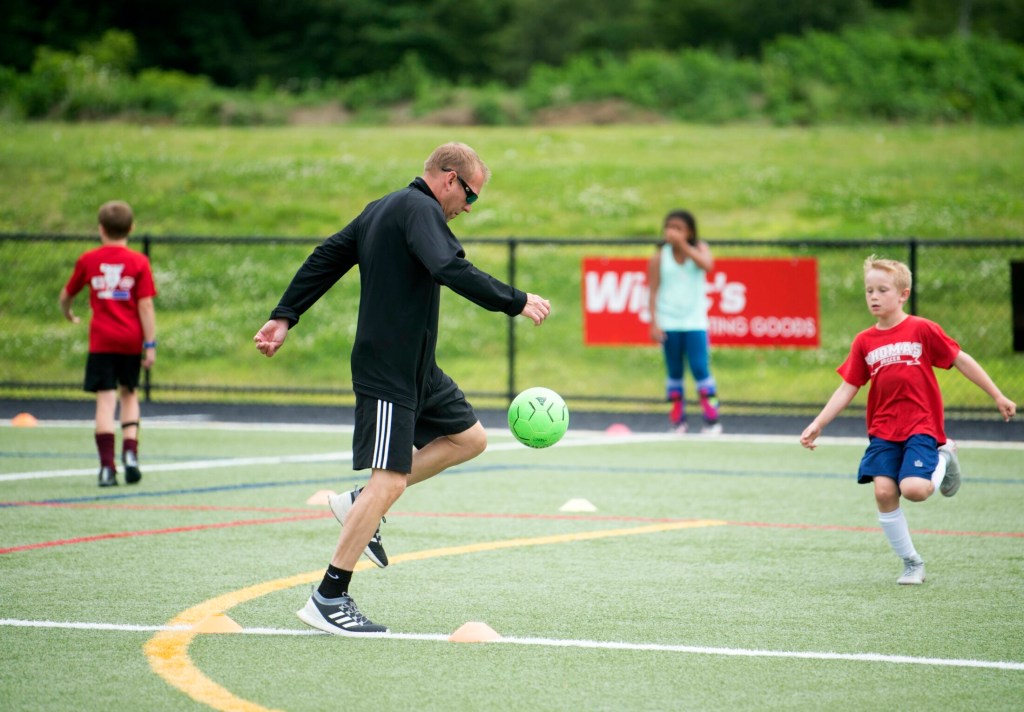
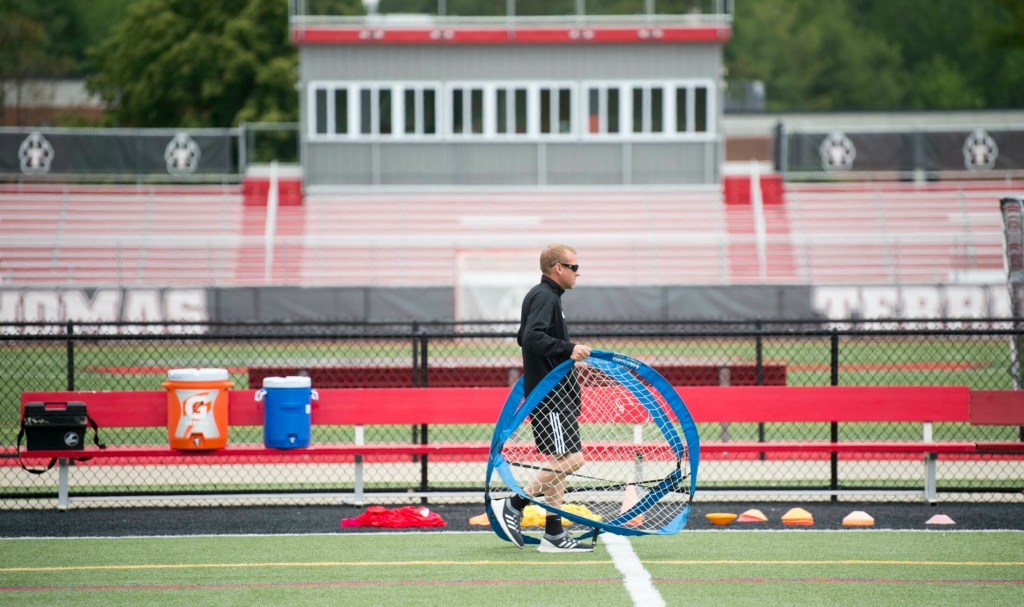

Success. Please wait for the page to reload. If the page does not reload within 5 seconds, please refresh the page.
Enter your email and password to access comments.
Hi, to comment on stories you must . This profile is in addition to your subscription and website login.
Already have a commenting profile? .
Invalid username/password.
Please check your email to confirm and complete your registration.
Only subscribers are eligible to post comments. Please subscribe or login first for digital access. Here’s why.
Use the form below to reset your password. When you've submitted your account email, we will send an email with a reset code.